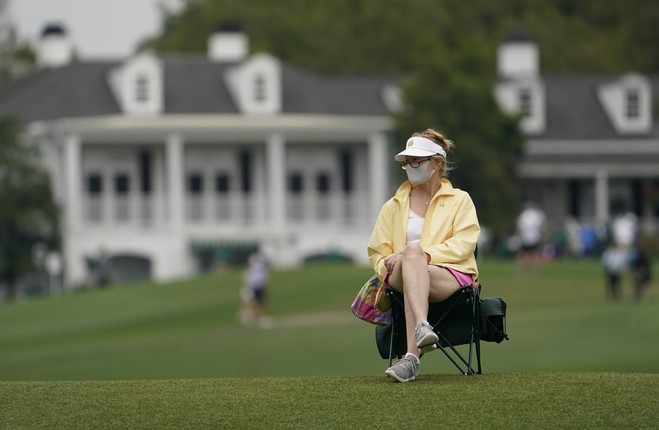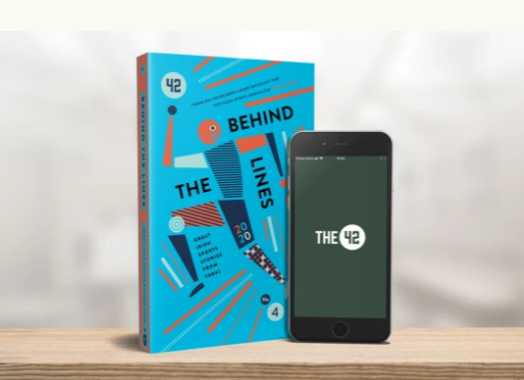1. This is a strange in-between Masters, because of the feeling that we just did this in November, and because Tiger Woods is at home and not here – although the news that he was speeding before his wreck is still bigger golf news than anything that might happen in Georgia this week – and because of the small masked crowd of patrons who are walking around a course made oddly unfamiliar without the huge grandstands set up as landmarks. Tournament veterans have stood near the 15th green and looked around in confusion, trying to get their bearings. It feels reflective of a larger national mood where many people are no longer fully in their mental and physical COVID-19 bunkers but still anxious about crowds and a return to normalcy.
ESPN’s Wright Thompson sets the scene from Augusta.
2. It is right to feel appalled, alienated and generally overpowered by the sums of money here. Most mega‑money transfers are a nonsense in any case. Look down the list and of the top eight deals of all time only Cristiano Ronaldo to Real Madrid actually looks a solid return – a function of Ronaldo’s miraculous talent rather than any kind of logic.
The unpalatable heart of this deal is that it is happening right now, at a time when there is contraction everywhere else, when community clubs are menaced by collapse and when the everyday people who fund this show, noses pressed against the glass, are suffering.
The Guardian’s Barney Ronay looks at the big impending transfer saga of the summer window, as Mino Raiola plots Erling Haaland’s exit from Borussia Dortmund.
3. “He gave his reasons for having that match played in New York and he finished his speech, I can remember it very well, by saying ‘every one of you here this evening has some relative in the New York area, a brother or a sister, an uncle or an aunt or someone else’. And he said, ‘are you going to deny them this little piece of Ireland? They’ll never see their homeland again. Are you going to deny them this bit of Ireland in the area where they’re living?’” recalled Clancy.
“Honestly, I could see tears in the eyes of some of the delegates and I could see a change coming over the gathering. That’s the line on which he finished his speech.”
In The Anglo-Celt, Paul Fitzpatrick details the remarkable GAA Congress which set in motion the plan to bring the 1947 All-Ireland SFC final to New York.
4. The good news for my one-man low block is that veteran’s league strikers are glacially slow. The bad news is that they are also the size of glaciers. Every time Hatfield’s front man receives the ball, back to goal, arse sticking out, I feel like the stricken Apollo 13 lunar module about to slingshot itself around the moon. Instead, I crouch behind him — the ball might as well be in Carshalton for all the hope I have of getting to it — and wait it out. This happens 47 times.
The Athletic’s Adam Hurrey details the joy of returning to five-a-side football. (€)
5. Offaly is hardly a hotbed of golf culture so it makes perfect sense that when the place should be arsed with producing a world class player, they’d gift the world with a creature like Lowry.
He only took up the sport at the age of 12 and took just a decade to win the Irish Open as a 22-year-old amateur. And he bounced around the edges of Irish sport for the following decade as an unacknowledged national treasure: gifted and approachable and entirely himself.
In The Irish Times, Keith Duggan examines why Shane Lowry stands out as such a unique character among golf’s elite.
6. As those years went on, everything grew — United, European football, media interest, scrutiny, security. But Gorman always found that whenever Irwin or a fellow Corkman could see the RTÉ emblem in the mixed zone, they’d make a point to stop, even the night in Barcelona Keane was suspended and missed out on playing in the European Cup final.
“At first he teased us by walking past but then, smiling, came back and did the interview. It was something inane, quite forgettable, but I thought even that interaction showed the essence of Keane: the bit of devilment, followed by the instinctive decency.”
Kieran Shannon chats to recently-retired RTÉ Northern Editor, Tommie Gorman, about sport, politics and Roy Keane, for The Irish Examiner.


